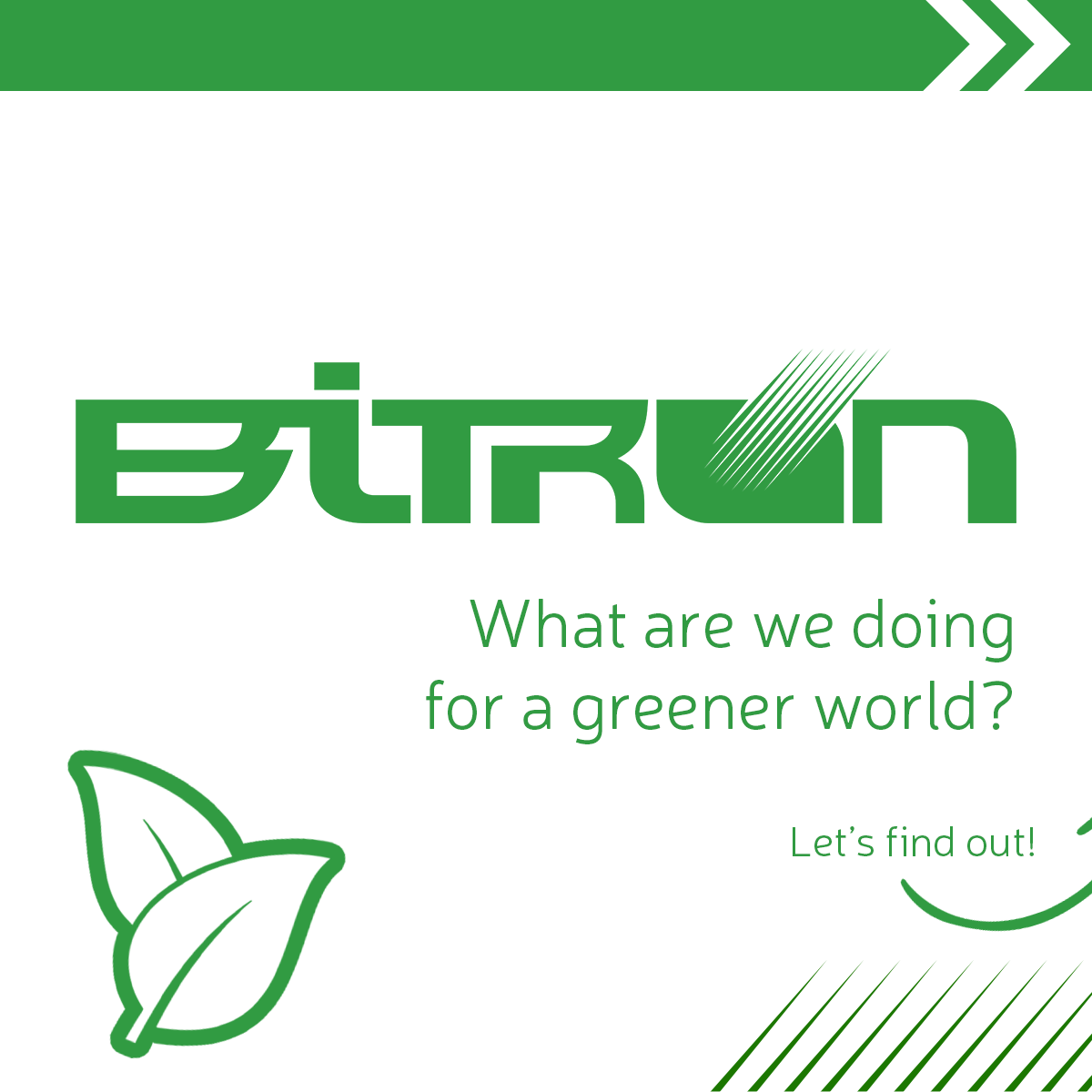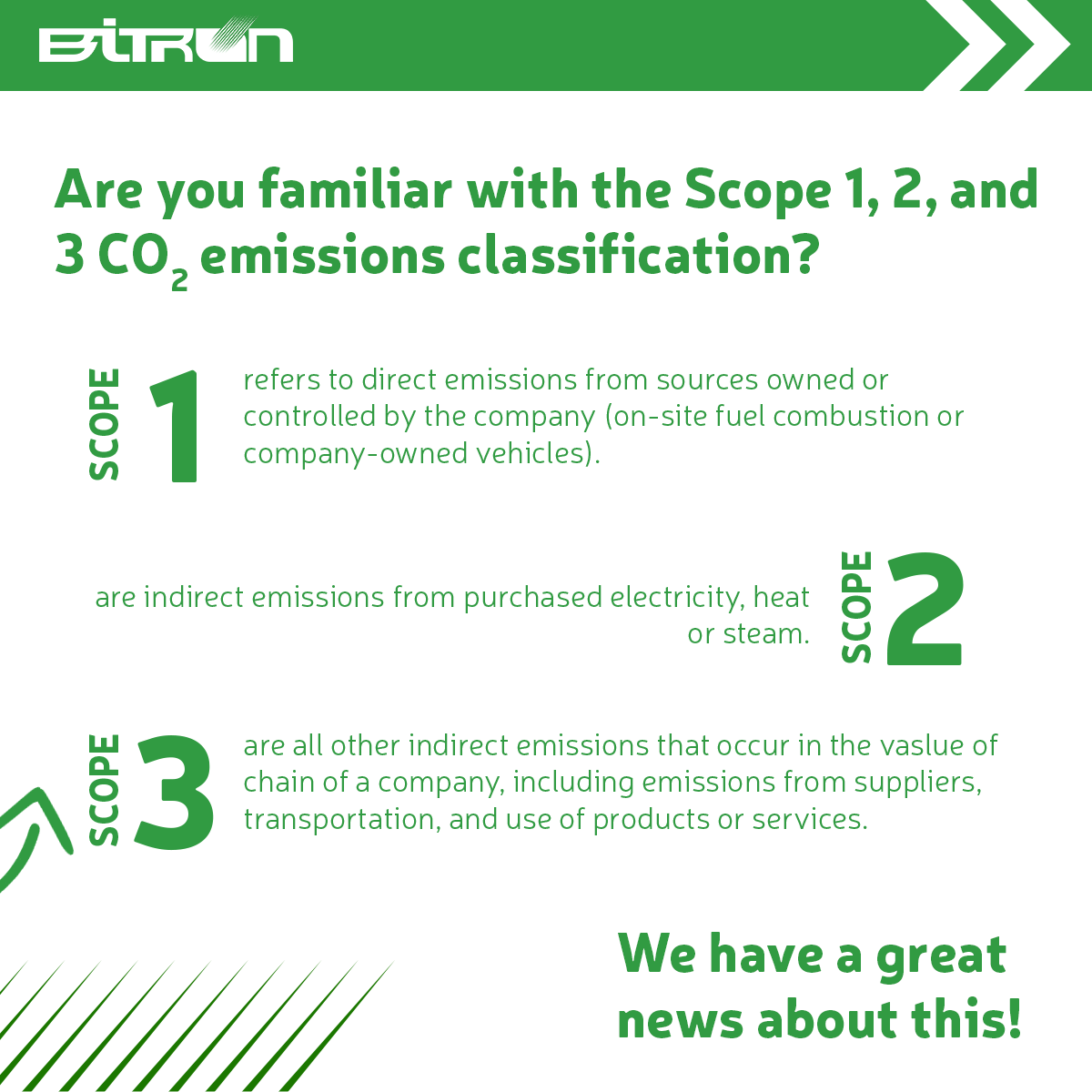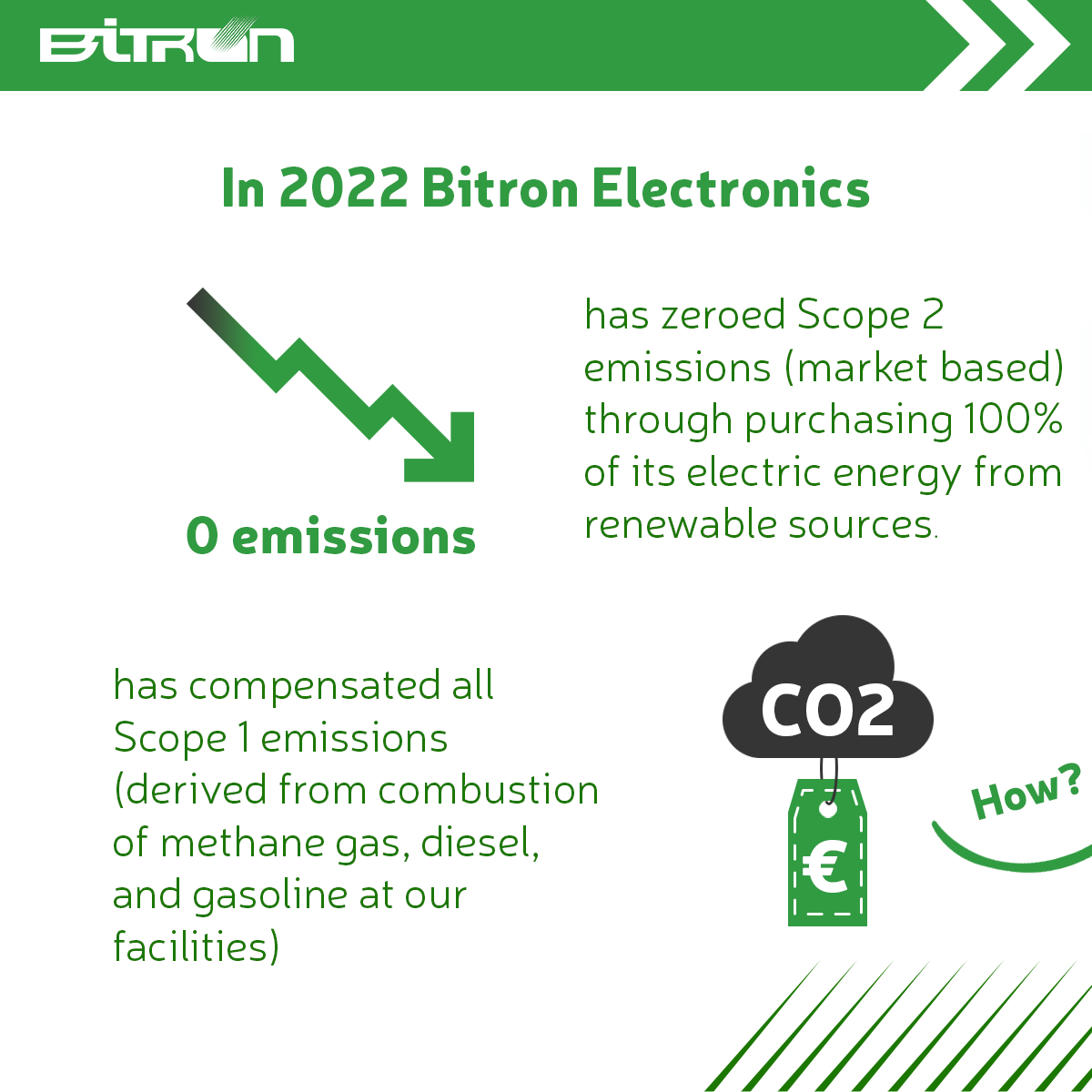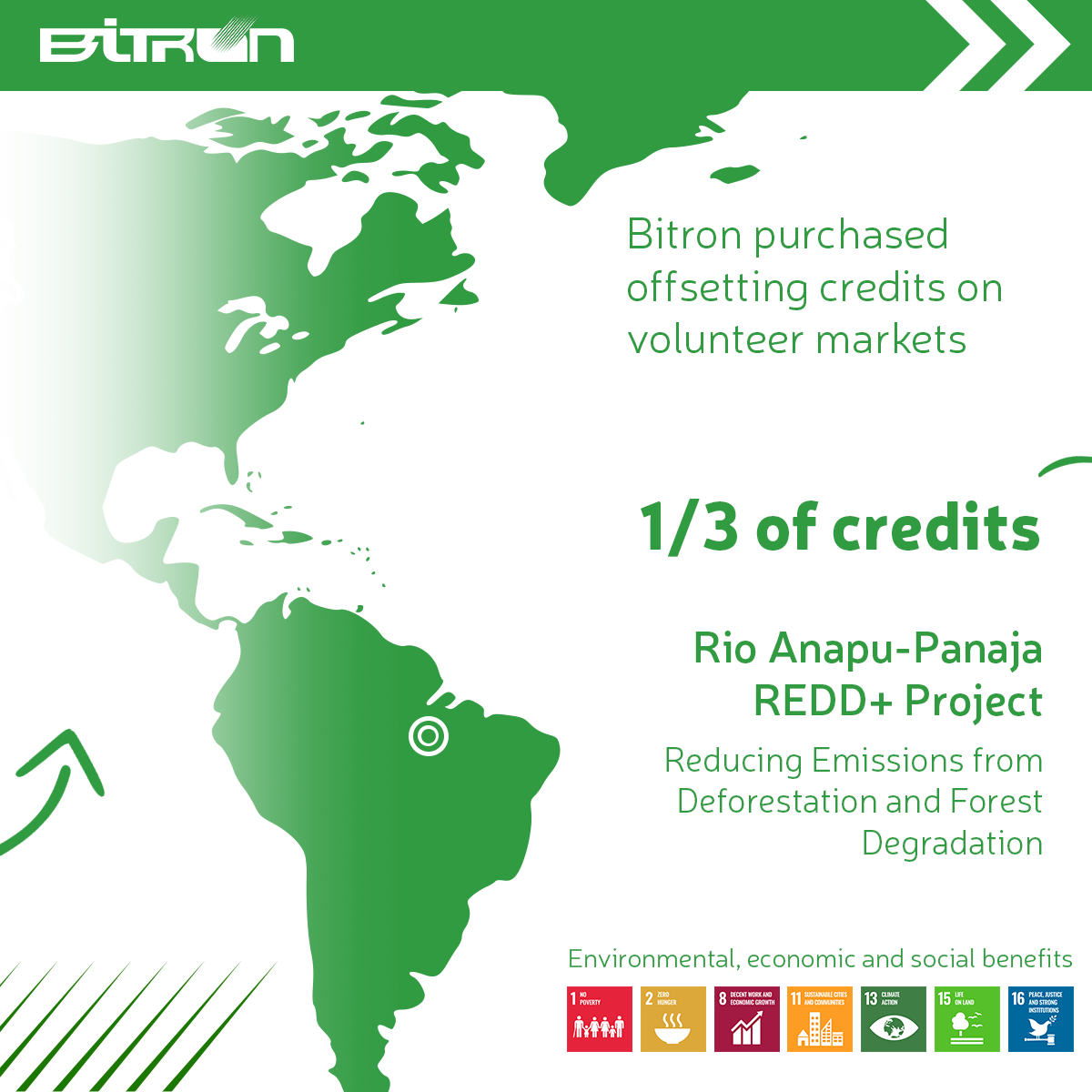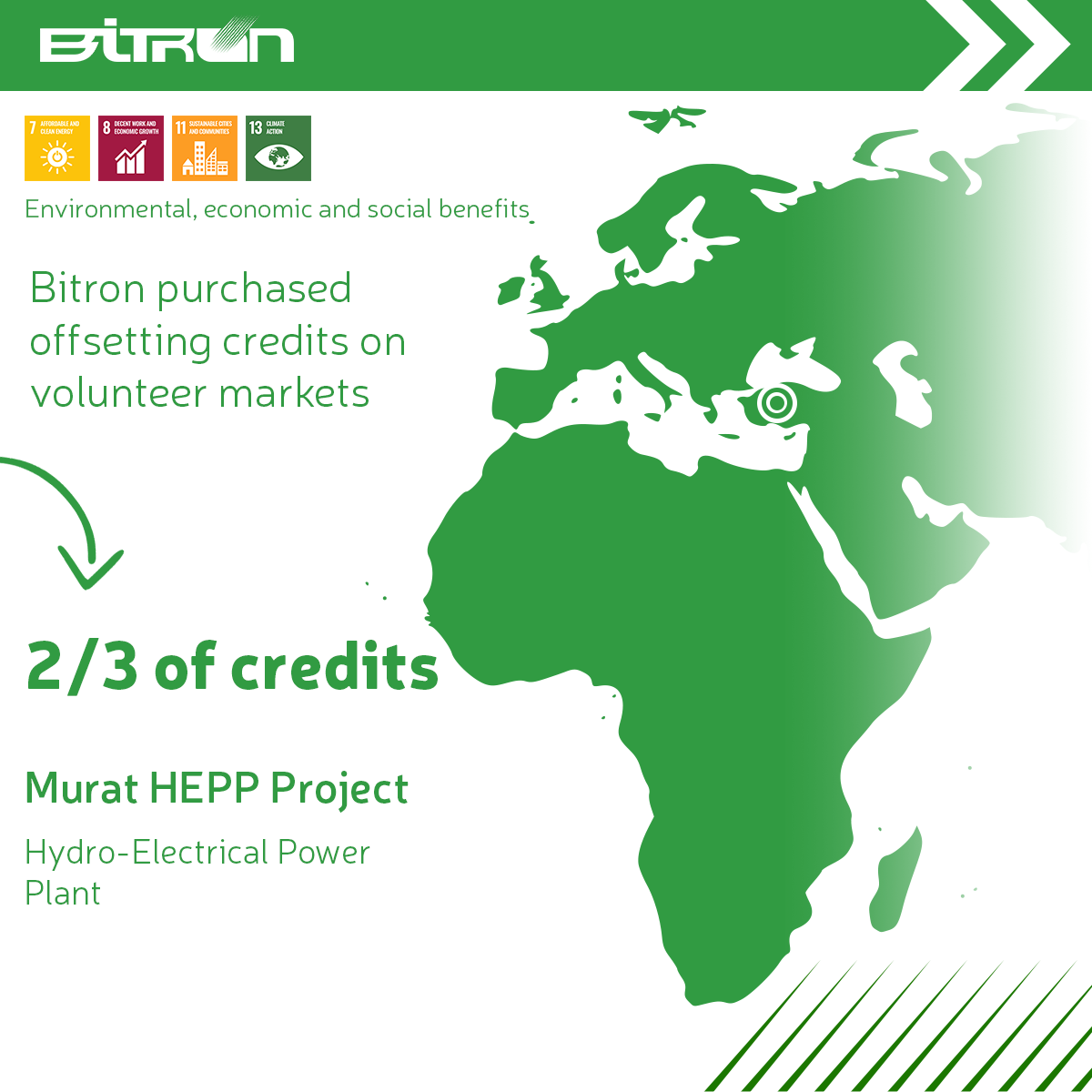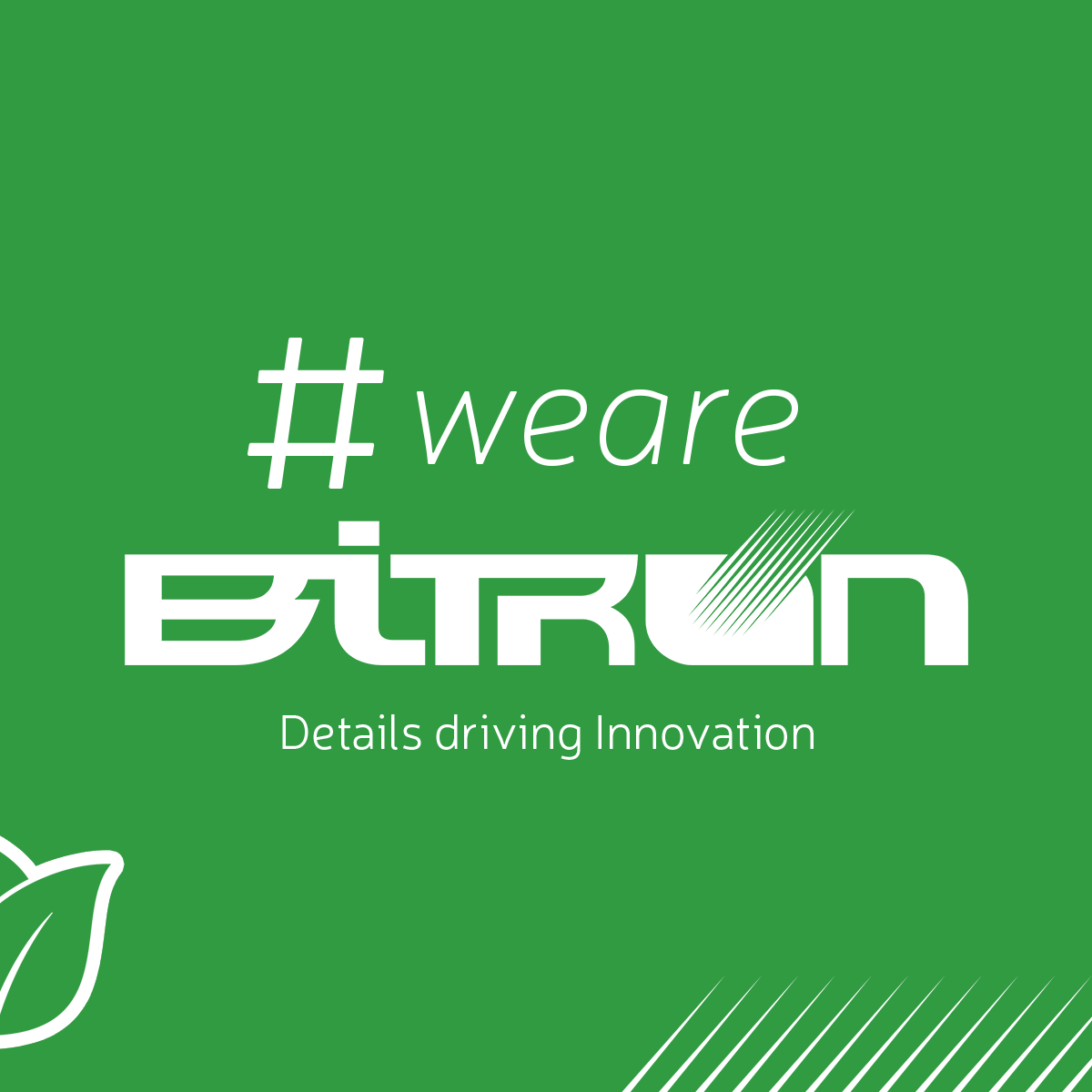
Working Together for a Sustainable Future: Bitron Electronics Business Unit's Zeroing of Scope 2 Emissions and Compensating Scope 1 Emissions
Sustainability is a crucial aspect for companies seeking to address environmental concerns and reduce carbon dioxide (CO2) emissions. The Electronics Business Unit of Bitron Group has made significant strides in this area, achieving a remarkable milestone by zeroing Scope 2 emissions through the purchase and self-production of renewable energy and compensating for Scope 1 emissions through VERRA-certified projects. In this article, we will delve into the categorization of CO2 emissions, highlighting the notable efforts of Bitron Electronics to promote sustainability.
Understanding CO2 Emissions:
To effectively manage and mitigate environmental impact, it is essential to understand the categorization of CO2 emissions. Let's explore the different scopes:
Scope 1 Emissions are direct emissions produced by a company's operations or facilities. This includes CO2 emissions from burning fossil fuels on-site, such as those generated by company-owned vehicles, boilers, or manufacturing processes.
Scope 2 Emissions are indirect emissions resulting from purchased energy sources, such as electricity and heat. These emissions arise during the production of the energy consumed by the organization. Companies can significantly reduce Scope 2 emissions by procuring energy from renewable sources.
Scope 3 Emissions are indirect emissions along a company's value chain, including upstream and downstream activities. This includes emissions from raw material extraction, transportation, product use, and disposal. Scope 3 emissions are extensive and challenging to quantify and manage.
Zeroing Scope 2 Emissions: Bitron's Renewable Energy Commitment
Bitron Electronics has taken significant steps to eliminate Scope 2 emissions. Since 2022, by purchasing energy exclusively from renewable sources, such as wind, solar, or hydro power, the BU has successfully achieved zero Scope 2 emissions. This commitment to renewable energy procurement showcases Bitron's dedication to minimizing its environmental impact and promoting sustainability.
Compensating Scope 1 Emissions: carbon credits by VERRA Certified Projects
In a parallel effort, Bitron Electronics has proactively addressed its Scope 1 emissions for the year 2022 through the support of VERRA-certified projects. These projects are specifically designed to reduce CO2 emissions or sequester carbon, but they usually also have other social related benefits. By investing in these initiatives, Bitron Electronics has effectively compensated for its Scope 1 emissions, ensuring a carbon-neutral footprint and contributed to different SDG.
The Rio Anapu-Panaja REDD+ Projects
One third of the offsetting credits come from the Rio Anapu-Panaja REDD+ Projects, where REDD stands for Reducing Emissions from Deforestation and Forest Degradation. In short, The Rio Anapu-Panaja REDD+ Projects are a set of initiatives focused on reducing emissions from deforestation and forest degradation in the Rio Anapu-Panaja region. These projects aim to protect and preserve the valuable forest resources in the area while promoting sustainable land use practices and providing economic incentives for local communities. By implementing measures to prevent deforestation and promote forest conservation, the Rio Anapu-Panaja REDD+ Projects play a crucial role in mitigating climate change and preserving biodiversity. This project also contributes to the achievement of SDG such as no poverty, zero hunger, Decent work and economic growth, Sustainable cities and communities, Life on land, Peace, justice and strong institutions.
Discover more about Rio Anapu-Panaka REDD+ Project
The Murat HEPP Project
The rest of the offsetting credits comes from The Murat HEPP (Hydroelectric Power Plant) project, an endeavor aimed at harnessing the power of the Murat River for sustainable energy generation. This project involves the construction and operation of a hydroelectric power plant that use the natural flow of the river to produce clean and renewable electricity. By harnessing the potential of this renewable energy source, the Murat HEPP project contributes to reducing reliance on fossil fuels and mitigating greenhouse gas emissions, while providing a reliable and sustainable source of electricity for the region.
By purchasing carbon offset credits from VERRA-certified projects, Bitron Electronics contributes to the development of projects that make a positive environmental impact. These credits enable the division to effectively compensate for its Scope 1 emissions and further reinforce their commitment to sustainability. This project also contributes to the achievement of SDG such as Affordable and clean energy, Decent work and economic growth, Sustainable cities and communities.
Discover more about the Murat HEPP Project
Conclusion
Bitron Electronics has made impressive strides in its sustainability efforts by achieving an important milestone for the company. Through the purchase and self-production of renewable energy and offsetting of Scope 1 emissions, for 2022, through the supporting of VERRA-certified projects, Bitron Electronics has taken proactive measures to neutralize its environmental impact proving Bitron's solid commitment to sustainability. By prioritizing renewable energy procurement and actively participating in projects that reduce CO2 emissions, the Bitron Group is driving positive change and contributing to a greener and more sustainable future.
